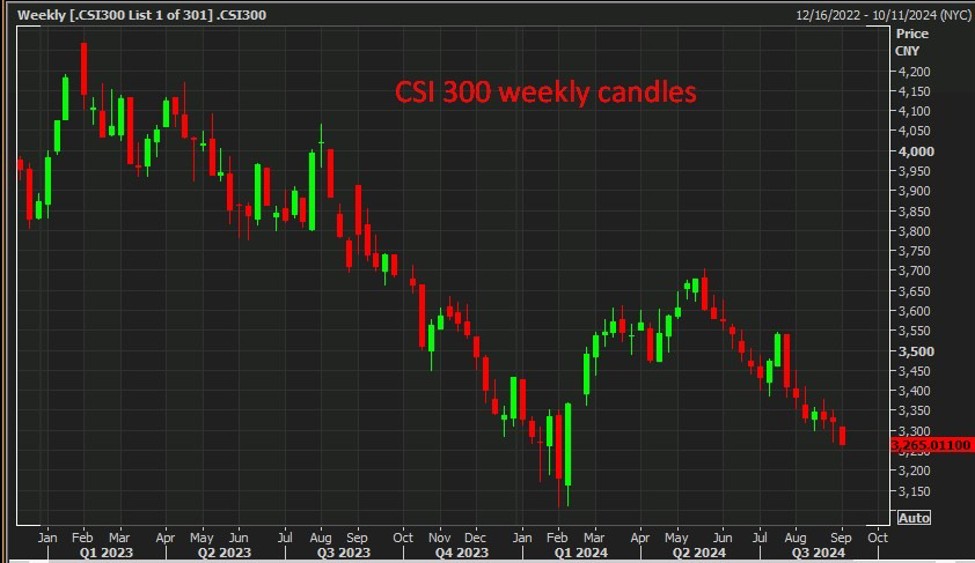Japan’s Sumitomo Mitsui DS Asset Management argues that the worst is now behind for China. This snippet in brief.
Analysts at the firm hold a positive outlook, citing:
- Chinese equities are attractively valued
- The worst is now behind China, even if the property market may take longer than expected to recover significantly
I’m digging up a little more China, I’ll have more to come on this separately.
The CSI 300 Index is a major stock market index in China that tracks the performance of 300 large-cap companies listed on the Shanghai and Shenzhen stock exchanges. It was launched on April 8, 2005, and is widely regarded as a benchmark for the Chinese stock market, similar to the S&P 500 in the United States.
Key features:
- The index includes the top 300 stocks by market capitalization and liquidity, representing a broad cross-section of sectors in the Chinese economy, including finance, technology, energy, and consumer goods.
- The index is composed of companies from both the Shanghai Stock Exchange (SSE) and the Shenzhen Stock Exchange (SZSE). The mix provides a balanced representation of different types of companies, from state-owned enterprises to private sector firms.
- The CSI 300 captures about 70% of the total market capitalization of the two exchanges, making it a key indicator of the overall health and trends in the Chinese stock market.
- The index can be quite volatile, reflecting the rapid changes and developments in the Chinese economy and market sentiment. It is often used by investors, both domestic and international, as a gauge of Chinese economic performance.
- The CSI 300 is also tracked by global investors as a way to gain exposure to China’s economic growth and development. It is the basis for several financial products, including exchange-traded funds (ETFs) and derivatives.



